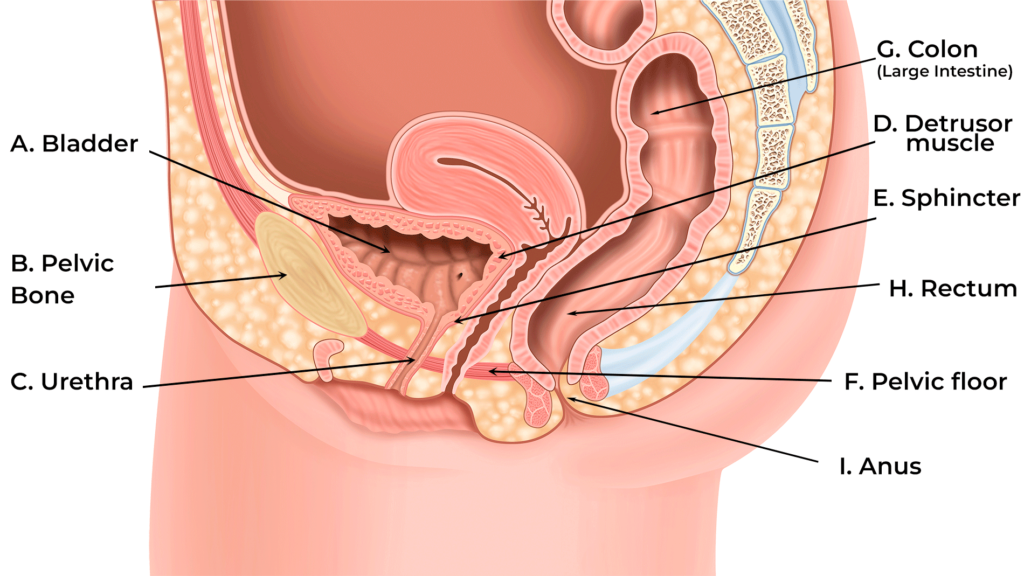
Introduction
Bladder health plays a vital role in a woman’s overall well-being, yet it is often overlooked. Issues like frequent urination, urinary incontinence, or bladder discomfort can not only affect physical health but also impact emotional well-being and self-confidence. For many women, maintaining a strong and healthy bladder is the key to living a more confident and fulfilling life.
In this article, we will explore the connection between bladder health and women’s confidence, the common causes of bladder problems, and effective strategies to improve bladder function naturally. By the end, you’ll have practical tips, lifestyle habits, and confidence-boosting techniques to feel empowered every day.
Why Bladder Health Matters for Women
Bladder health is more than just the ability to control urination. It affects multiple aspects of a woman’s life, from comfort in social situations to emotional confidence and even sexual health.
- A healthy bladder ensures proper urine storage and release.
- Good bladder habits reduce the risk of urinary tract infections (UTIs).
- Proper bladder care helps prevent incontinence and pelvic floor weakness.
- Women with good bladder health report higher confidence and self-esteem.
Common Bladder Health Issues in Women
Many women silently struggle with bladder issues, but understanding the causes can help address them.
1. Urinary Incontinence
Involuntary leakage of urine during activities like laughing, sneezing, or exercising is common, especially after childbirth or menopause.
2. Overactive Bladder (OAB)
Frequent urges to urinate, often disrupting daily life and sleep.
3. Urinary Tract Infections (UTIs)
Women are more prone to UTIs due to shorter urethras, leading to discomfort, burning sensations, and frequent urination.
4. Pelvic Floor Dysfunction
Weakness in pelvic muscles can reduce bladder control and affect confidence in social situations.
The Emotional Impact: How Bladder Issues Affect Confidence
Bladder problems are not only physical—they deeply impact emotional health.
- Embarrassment: Fear of leaks can stop women from engaging in activities.
- Social Anxiety: Many avoid outings or long travel due to frequent bathroom needs.
- Reduced Intimacy: Worrying about bladder control can affect romantic relationships.
- Self-Esteem Decline: Constant bladder concerns may lower overall confidence.
By addressing bladder health, women can reclaim their sense of independence and self-assurance.

Natural Ways to Improve Bladder Health
1. Strengthen Pelvic Floor Muscles
- Practice Kegel exercises daily.
- Consider yoga and Pilates for core strength.
- Use pelvic floor trainers if recommended by a specialist.
2. Stay Hydrated the Right Way
- Drink 6–8 glasses of water daily.
- Avoid excessive caffeine and carbonated drinks, as they irritate the bladder.
3. Maintain a Balanced Diet
- Eat fiber-rich foods to prevent constipation, which strains the bladder.
- Include cranberries, blueberries, pumpkin seeds, and probiotics to support urinary health.
- Limit spicy foods and artificial sweeteners that may worsen bladder sensitivity.
4. Maintain a Healthy Weight
Excess weight puts pressure on the bladder and pelvic muscles. Weight management reduces the risk of incontinence.
5. Practice Healthy Bathroom Habits
- Don’t hold urine for too long.
- Empty the bladder completely.
- Wipe front to back to avoid infections.
Medical Support for Bladder Health
For women experiencing persistent bladder issues, professional support is important.
- Urologists or gynecologists can diagnose conditions.
- Medications may help reduce overactive bladder symptoms.
- Physical therapy supports pelvic muscle strengthening.
- Surgical treatments are available for severe incontinence.
Boosting Confidence Alongside Bladder Care
Improving bladder health is just one part of the journey. Building emotional resilience and self-confidence is equally important.
1. Mindset Shifts
- Accept that bladder issues are common and treatable.
- Focus on progress instead of perfection.
2. Self-Care Routines
- Dress in clothes that make you feel confident.
- Engage in physical activities that empower you—dancing, yoga, or walking.
- Invest in skincare and grooming, as self-care improves self-esteem.
3. Emotional Wellness
- Practice mindfulness and meditation to reduce anxiety.
- Join support groups where women share similar experiences.
- Talk openly with partners, family, or friends to reduce stigma.
4. Professional Guidance
- Counseling or therapy can help overcome embarrassment and boost confidence.
- Confidence-building workshops and seminars can provide tools to grow self-assurance.
Lifestyle Tips for Long-Term Confidence and Bladder Health
Exercise Regularly
- Strength training, walking, and swimming all improve circulation and bladder control.
Sleep Well
- Poor sleep worsens stress, which can trigger bladder sensitivity. Aim for 7–8 hours of quality rest.
Reduce Stress
- High stress can tighten pelvic muscles and worsen urinary issues.
- Stress-reduction techniques like deep breathing, yoga, and journaling are helpful.
Limit Alcohol & Smoking
- Both alcohol and smoking irritate the bladder and increase risks of infections and incontinence.
Confidence-Boosting Daily Practices for Women
- Start the day with positive affirmations.
- Carry confidence-boosting accessories (like a favorite perfume or jewelry).
- Celebrate small health victories, like fewer bathroom trips.
- Keep a bladder-health journal to track improvements.
Conclusion
Bladder health and women’s confidence are deeply connected. When the bladder is strong and healthy, women can enjoy more freedom, less anxiety, and a higher sense of self-esteem. By adopting healthy habits, practicing pelvic floor exercises, and embracing self-care routines, women can improve both physical well-being and emotional confidence.
Every woman deserves to feel empowered, in control, and confident in every area of her life—including bladder health. Taking action today can lead to a healthier, happier, and more confident tomorrow.

